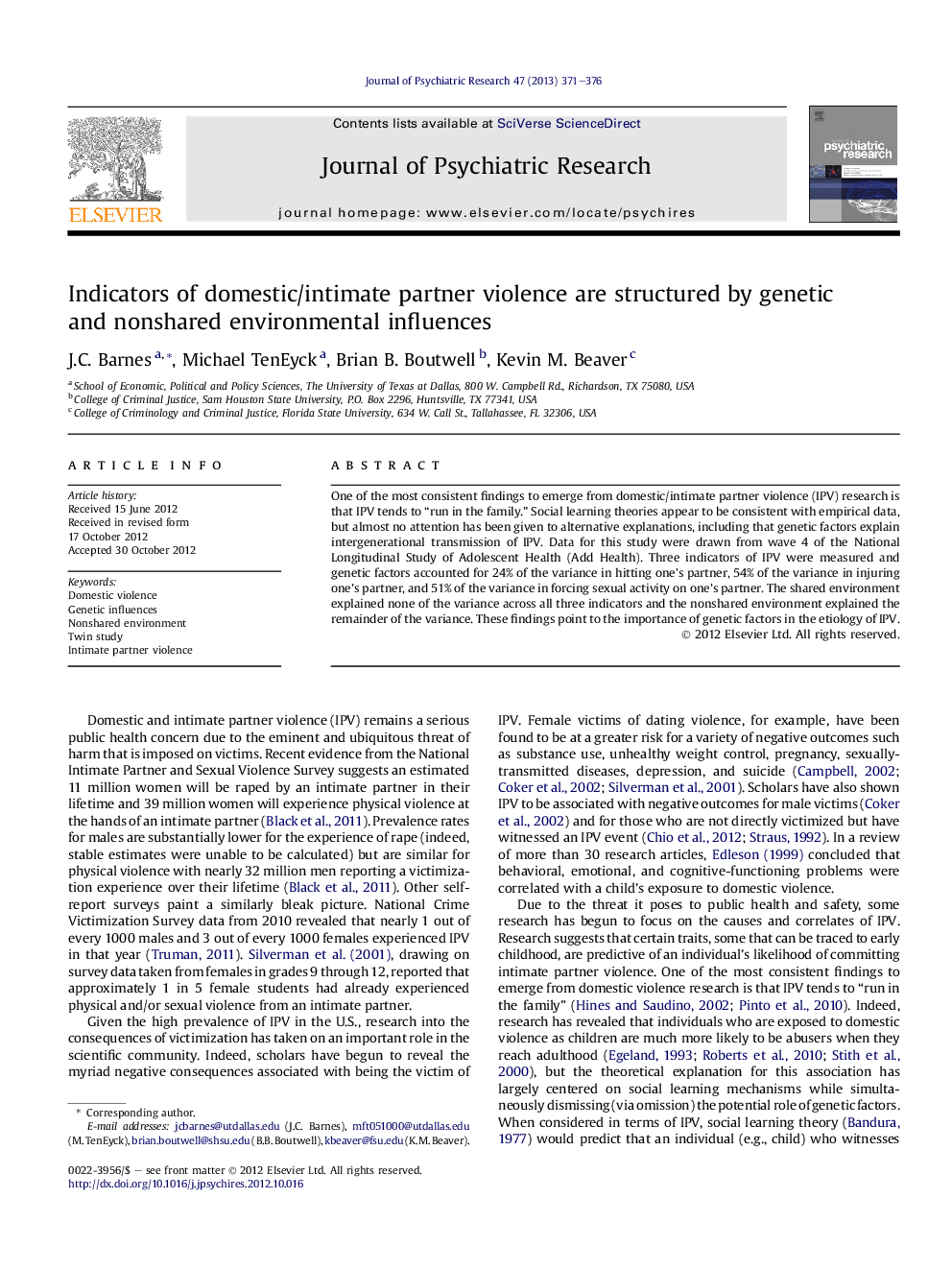| Article ID | Journal | Published Year | Pages | File Type |
|---|---|---|---|---|
| 327026 | Journal of Psychiatric Research | 2013 | 6 Pages |
One of the most consistent findings to emerge from domestic/intimate partner violence (IPV) research is that IPV tends to “run in the family.” Social learning theories appear to be consistent with empirical data, but almost no attention has been given to alternative explanations, including that genetic factors explain intergenerational transmission of IPV. Data for this study were drawn from wave 4 of the National Longitudinal Study of Adolescent Health (Add Health). Three indicators of IPV were measured and genetic factors accounted for 24% of the variance in hitting one's partner, 54% of the variance in injuring one's partner, and 51% of the variance in forcing sexual activity on one's partner. The shared environment explained none of the variance across all three indicators and the nonshared environment explained the remainder of the variance. These findings point to the importance of genetic factors in the etiology of IPV.
